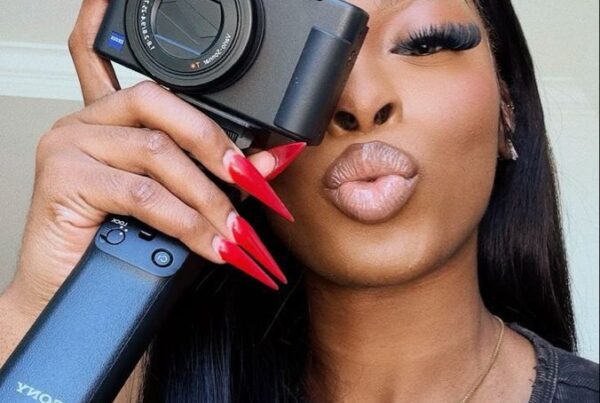Career growth is often painted as a solo climb: learn the skills, earn the certifications, collect the achievements, and eventually, you’ll rise. But in reality, careers don’t grow in isolation.
They grow in networks, through people who advocate for you, speak your name in rooms you haven’t entered, and connect you to opportunities that never make it to a job board.
We don’t like to admit it, but visibility and access often matter just as much as talent. Friendship, especially the strategic, career-aligned kind, is one of the most underrated drivers of growth.
Your Work Friends Aren’t Your Friends (Maybe, that’s okay)
It’s something you learn quickly in the workplace: your work friends aren’t always your real friends.
Most of the time, they’re just people you spend a lot of time with. You bond over deadlines, laugh at the same manager, and complain about the same meetings. It feels close.
But proximity is not the same as loyalty.
You can’t confuse the person who chats with you at lunch with the one who’ll speak up for you in a leadership meeting. Or protect your name when gossip spreads. Or warn you when something’s shifting behind closed doors.
Work friendships are fragile, so you must be cautious. Because at the end of the day, your work friend is still someone who reports to the same manager you might be venting about. Who might get offered the promotion you thought you were up for? Someone who might even repeat that “harmless joke” you made, just to gain favour with your boss.
That doesn’t mean you need to be cold.
It just means you need to be smart.
Why You Still Need To Build Professional Friendship
So yes, you have to be mindful of your relationships with work friends. But that doesn’t mean they’re not important. When built with intention, they can be essential to growing your career. Here’s why you need professional friendships:
1. Friends expand your influence, even when you’re not in the room
In most organisations, decisions about promotions and new opportunities happen in rooms you’re not invited to. The question is: who is speaking for you in those rooms?
A trusted colleague can mention your name when they hear of a role, a project, or a partnership. This is how you access the hidden job market, which still accounts for the majority of career opportunities.
2. Friendships Turn Networking Into Opportunity
Traditional networking is often transactional. Coffee chats. LinkedIn requests. Polite introductions. Friendship takes it further because it adds depth, trust, and longevity.
Friendships build the kind of trust that can’t be faked. People are more likely to put their own credibility on the line for someone they actually know and believe in. They understand your skills, values, work ethic, and strengths, and they are able to make real advocacy possible when referring you to a job opportunity.
People change jobs, industries, and titles. But the right friendships often outlast all of that. They keep you connected to opportunities across years, not months.
3. They create a layer of protection in volatile careers
Layoffs or restructuring happen, and sometimes your career shifts before you’re ready. But when someone is already looking out for you, quietly and intentionally, you land faster on your feet. A friend forwarded a job link. A quiet heads-up in your inbox. A message that says, “I think this has your name on it.” That’s what makes the difference.
How to Build Professional Friendships Intentionally
You don’t build meaningful professional friendships by declaring loyalty on the first day. Neither should you force vulnerability just to fast-track a connection. The best professional friendships don’t just appear. You create the right conditions for them.
Start by Adding Value: Share insights. Help with a project. Make an introduction. Offer support before you ever ask for anything. Be useful and genuinely interested.
Build in Professional Contexts: Industry events, alumni groups, cross-functional projects, even a LinkedIn DM with real intention. The best relationships often begin in shared spaces, rather than through forced bonding.
Read Also: 5 Free AI Tools That’ll Make You Feel Like You’ve Hired A Personal Assistant
Nurture the Relationship Over Time: A quick check-in message, sending a relevant resource, or congratulating a career win keeps relationships alive without forced effort.
Look for Alignment, Not Just Proximity: The most valuable work friendships don’t always sit beside you. Sometimes they’re in other departments, other industries, even other cities. Pay attention to shared interests or values, and not just how often you see them.]
Don’t assume that every colleague is your friend or that friendliness equals discretion. That’s where people get burned.
Maintain boundaries, especially when it comes to gossip, venting, and secrets. Think twice before you unpack your frustrations with your boss to someone who also works under her. You need to think twice before revealing personal details that could be misinterpreted as a weakness. And never, ever confuse mutual frustration for mutual loyalty. A shared enemy is not the same thing as shared trusted friends.
Final Note
It’s easy to believe that if you just keep your head down and do the work, things will fall into place. But in most careers, it’s not just about the work. It’s about the people, the ones who remember your name when you’re not in the room, the ones who connect you to the opportunity you didn’t even know was coming, the ones who want you to win because they’ve seen your work and respect it.
Not every colleague will become that person. Not every connection will grow into something real. Some people will disappoint you. Others will surprise you. But if you’re lucky and intentional, you’ll find a few people who make the journey less isolating and far more possible.




